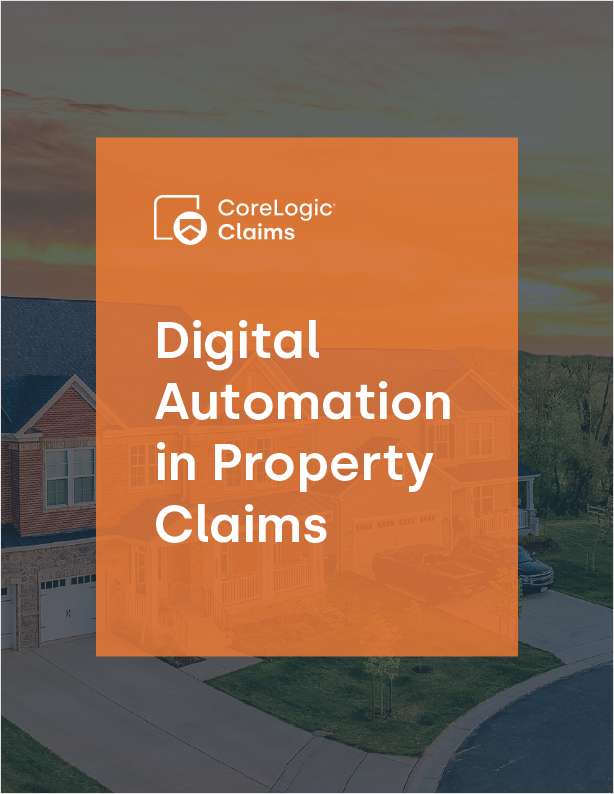Human Trafficking Victims Deserve Greater Access to Second Chances
A simple revision to Connecticut's vacatur law would make an important difference to victims of human trafficking. The state should allow trafficking victims with convictions for crimes other than prostitution to request vacatur from the court, but give judges the discretion to grant or deny such requests.
February 27, 2020 at 11:11 AM
6 minute read
 Legislators should amend our state's vacatur law, Connecticut General Statutes § 54-95c (2016), to allow more victims of human trafficking to request that a court vacate—i.e. set aside or annul—their criminal convictions.
Legislators should amend our state's vacatur law, Connecticut General Statutes § 54-95c (2016), to allow more victims of human trafficking to request that a court vacate—i.e. set aside or annul—their criminal convictions.
The current statute is both unduly narrow and dangerously overbroad. Enacted in 2013, Connecticut's vacatur statute has yet to be invoked by a single trafficking victim. The original statute was a narrow provision that allowed any person convicted of prostitution to apply to the Superior Court to vacate their conviction based on a showing that the applicant was a victim of trafficking "at the time of the offense."
If such a showing was made, the statute mandated that the Superior Court grant vacatur ("the court shall vacate the judgment of conviction") and dismiss any charges related to the prostitution offense. Notably, the statute affords "the prosecutor a reasonable opportunity to investigate the defendant's claim and an opportunity to be heard to contest the defendant's application." Because prostitution is considered a victimless crime, the statute currently contains no victim-notification provision.
As part of an attempt to reach more victims, legislative tinkering in 2016 resulted in a troubling drafting error that now mandates the vacatur of convictions other than prostitution. In its 2016 amendments, the Legislature made two distinct changes to the statute. First, it broadened the statute's nexus requirement; instead of tying eligibility to the person's status as a trafficking victim "at the time of the offense," the revised statute expands eligibility to applicants who can show that their "participation in the offense was a result of having been a victim of [trafficking]." This expansion acknowledges the reality that many victims make multiple unsuccessful attempts to leave their traffickers before finally breaking free; some victims continue to commit crimes—in particular, immediately after they physically escape—because their traffickers continue to exercise control over them through use of force, fraud and coercion.
Unfortunately, the second amendment enacted in 2016 introduced a fatal flaw. At three critical points throughout the statute, legislators substituted the words "the judgment of conviction" with the words "any judgment of conviction" (emphases added), thereby adding to the list of crimes requiring mandatory vacatur. Coupled with the word "shall," these substitutions have the effect of requiring a court that grants vacatur to a trafficking victim with a prostitution conviction also to vacate "any judgment of conviction." (Any other interpretation of these three substitutions would render this amendment meaningless.) In other words, if a trafficking victim with both a prostitution and a murder conviction can show that both crimes resulted from their having been trafficked, the judge would be required to grant vacatur with respect to both convictions.
Connecticut's vacatur law was intended to erase the official stain that haunts trafficking victims after they have escaped their traffickers—their criminal records. Legislators wisely envisioned vacatur—rather than the existing pardons process—as the appropriate vehicle to address criminal record relief for such victims. Because the Board of Pardons and Parole typically expects applicants to acknowledge guilt, take responsibility for their actions and ask for forgiveness, the process is ill-suited to adjudicating requests from survivors of trafficking. The cases of trafficking survivors necessarily involve stories of diminished culpability; to fully accept guilt would by definition contradict any claim of having been trafficked.
Using force, fraud and coercion, traffickers target and isolate their victims and then control and terrorize them. Some traffickers give their victims drugs to get them addicted; others beat and rape their victims as punishment; while others threaten to harm or kill their victims' families and friends. Many traffickers do all of these things. This process leads to trauma bonding, a destructive connection between trafficker and victim created by ongoing cycles of abuse designed to create dependency.
Traffickers force their victims to commit a range of illegal acts and then threaten to expose them to criminal prosecution, allowing traffickers to avoid criminal liability themselves while ensuring the continued vulnerability of their victims. Victims know that if they resist or try to leave, their traffickers can always use their past criminal activities against them. In a National Survivor Network survey of 130 trafficking survivors, 60% reported being arrested for crimes other than prostitution or drug related offenses. Such crimes include forgery, larceny, burglary, loitering, vagrancy, disorderly conduct, assault and resisting arrest.
Traffickers exploit people's vulnerabilities; they do not discriminate—victims can be of any gender, including transgender individuals; from any socio-economic status; of any racial or ethnic background; etc. That said, the estimated average age of entry into sex trafficking is 13 years old. For this reason, many victims lack basic life experience, including education, job skills, family support, etc.—both when they are recruited and after they escape their traffickers. If victims are 17 or older when they escape their traffickers, they are often tried as adults even though they were initially trafficked as children. As survivors struggle to rebuild their lives and become productive members of society, their criminal records severely limit access to employment, housing, education and other building blocks of civic life.
The legislative fix is fairly simple. First, maintain mandatory vacatur for trafficking victims with prostitution convictions. Second, give all trafficking victims the opportunity to at least be heard on their vacatur applications with respect to other crimes. Specifically, allow trafficking victims with convictions for crimes other than prostitution to request vacatur from the court, but give judges the discretion to grant or deny such requests. In adjudicating these non-prostitution applications, preserve the prosecutor's right to investigate and contest the vacatur request, but also give any affected crime victim the right to be heard. After hearing from all interested parties, and after having considered all the evidence, the court can then exercise its discretion to grant or deny the vacatur request.
Experts argue that trafficking survivors face three moments of victimization: at the hands of their trafficker; in interacting with the criminal justice system; and as they try to recover and rebuild their lives as survivors. Connecticut is working to develop programs and protocols for identifying trafficking victims, who remain hidden as their cases wind through the criminal justice system. As our state enacts other criminal justice reforms, legislators should, at a minimum, amend Connecticut's vacatur statute to permit judges to consider the vacatur applications of all trafficking victims, even if they have never been convicted of prostitution. Fixing our vacatur law represents a critical step toward recognizing that survivors of human trafficking are first and foremost victims and remembering why they deserve a second chance.
This content has been archived. It is available through our partners, LexisNexis® and Bloomberg Law.
To view this content, please continue to their sites.
Not a Lexis Subscriber?
Subscribe Now
Not a Bloomberg Law Subscriber?
Subscribe Now
NOT FOR REPRINT
© 2025 ALM Global, LLC, All Rights Reserved. Request academic re-use from www.copyright.com. All other uses, submit a request to [email protected]. For more information visit Asset & Logo Licensing.
You Might Like
View All
ADVANCE Act Offers Conn. Opportunity to Enhance Carbon-Free Energy and Improve Reliability With Advanced Nuclear Technologies

Trending Stories
- 1States Accuse Trump of Thwarting Court's Funding Restoration Order
- 2Microsoft Becomes Latest Tech Company to Face Claims of Stealing Marketing Commissions From Influencers
- 3Coral Gables Attorney Busted for Stalking Lawyer
- 4Trump's DOJ Delays Releasing Jan. 6 FBI Agents List Under Consent Order
- 5Securities Report Says That 2024 Settlements Passed a Total of $5.2B
Who Got The Work
J. Brugh Lower of Gibbons has entered an appearance for industrial equipment supplier Devco Corporation in a pending trademark infringement lawsuit. The suit, accusing the defendant of selling knock-off Graco products, was filed Dec. 18 in New Jersey District Court by Rivkin Radler on behalf of Graco Inc. and Graco Minnesota. The case, assigned to U.S. District Judge Zahid N. Quraishi, is 3:24-cv-11294, Graco Inc. et al v. Devco Corporation.
Who Got The Work
Rebecca Maller-Stein and Kent A. Yalowitz of Arnold & Porter Kaye Scholer have entered their appearances for Hanaco Venture Capital and its executives, Lior Prosor and David Frankel, in a pending securities lawsuit. The action, filed on Dec. 24 in New York Southern District Court by Zell, Aron & Co. on behalf of Goldeneye Advisors, accuses the defendants of negligently and fraudulently managing the plaintiff's $1 million investment. The case, assigned to U.S. District Judge Vernon S. Broderick, is 1:24-cv-09918, Goldeneye Advisors, LLC v. Hanaco Venture Capital, Ltd. et al.
Who Got The Work
Attorneys from A&O Shearman has stepped in as defense counsel for Toronto-Dominion Bank and other defendants in a pending securities class action. The suit, filed Dec. 11 in New York Southern District Court by Bleichmar Fonti & Auld, accuses the defendants of concealing the bank's 'pervasive' deficiencies in regards to its compliance with the Bank Secrecy Act and the quality of its anti-money laundering controls. The case, assigned to U.S. District Judge Arun Subramanian, is 1:24-cv-09445, Gonzalez v. The Toronto-Dominion Bank et al.
Who Got The Work
Crown Castle International, a Pennsylvania company providing shared communications infrastructure, has turned to Luke D. Wolf of Gordon Rees Scully Mansukhani to fend off a pending breach-of-contract lawsuit. The court action, filed Nov. 25 in Michigan Eastern District Court by Hooper Hathaway PC on behalf of The Town Residences LLC, accuses Crown Castle of failing to transfer approximately $30,000 in utility payments from T-Mobile in breach of a roof-top lease and assignment agreement. The case, assigned to U.S. District Judge Susan K. Declercq, is 2:24-cv-13131, The Town Residences LLC v. T-Mobile US, Inc. et al.
Who Got The Work
Wilfred P. Coronato and Daniel M. Schwartz of McCarter & English have stepped in as defense counsel to Electrolux Home Products Inc. in a pending product liability lawsuit. The court action, filed Nov. 26 in New York Eastern District Court by Poulos Lopiccolo PC and Nagel Rice LLP on behalf of David Stern, alleges that the defendant's refrigerators’ drawers and shelving repeatedly break and fall apart within months after purchase. The case, assigned to U.S. District Judge Joan M. Azrack, is 2:24-cv-08204, Stern v. Electrolux Home Products, Inc.
Featured Firms
Law Offices of Gary Martin Hays & Associates, P.C.
(470) 294-1674
Law Offices of Mark E. Salomone
(857) 444-6468
Smith & Hassler
(713) 739-1250












